
The Workshop on Productive Capacity and Least Developed Country (LDC) Graduation was successfully held at the Center for New Structural Economics (CNSE) at Peking University from November 10 to 12, 2016.
Organized in collaboration with the Committee for Development Policy (CDP) Secretariat of the Development Policy and Analysis Division (DPAD) of the UN Department of Economic and Social Affairs (UN-DESA) and co-sponsored by the Commonwealth Secretariat, the three-day workshop discussed the importance of LDC productive capacities and related national policy measures needed for successful LDC graduation.
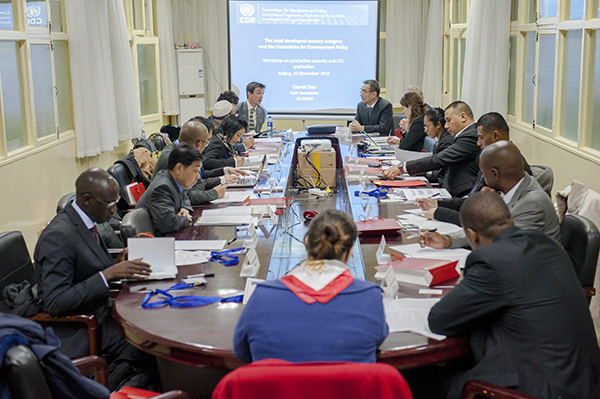
Roundtable Meeting
Policymakers from 9 LDCs and one graduated country participated in the workshop, including: Bangladesh, Bhutan, Cambodia, Gambia, Lesotho, Myanmar, Samoa, Solomon Islands, Timor Leste and Uganda.
Prof. Justin Yifu Lin, Director of the CNSE, delivered the opening remarks and shared the vision of New Structural Economics (NSE) as a theoretical and policy framework for achieving sustainable and inclusive economic transformation in a globalized world.
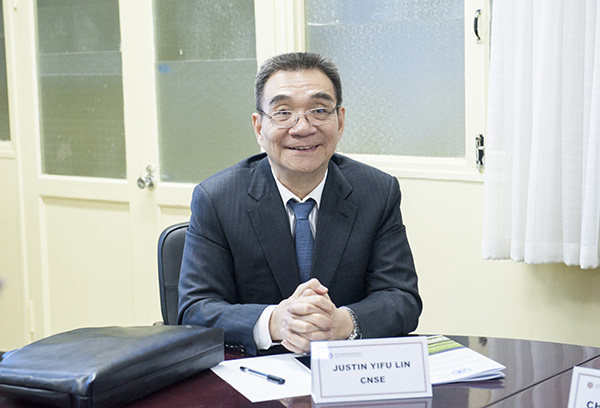
Prof. Justin Yifu Lin
Dr. Jiajun Xu, Executive Deputy Director of the CNSE, introduced the Growth Identification and Facilitation Framework (GIFF), an action-oriented policy tool for identifying ‘what a developing country has’ (factor endowment analysis) and ‘what it can potentially do well’ (latent comparative advantages), and its relevance to the LDCs in terms of how governments can play a facilitating role in overcoming the first-mover and coordination problems.
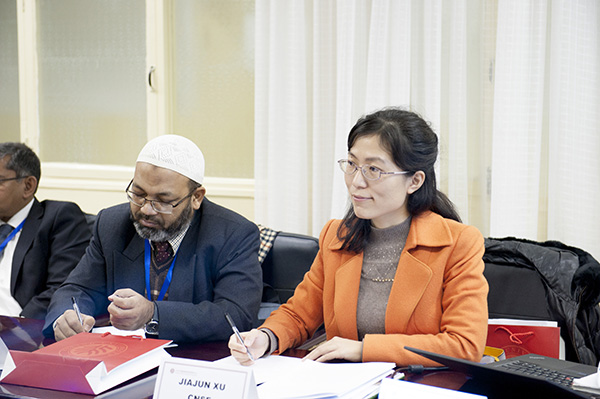
Dr. Jiajun Xu
Ms. Sarah Hager, Research Manager of the CNSE, explained the techniques behind the GIFF approach in case studies of pilot countries including Nepal and Uganda.
Participants from LDCs likely to graduate in coming years presented their graduation strategies, followed by a brainstorming session on the graduation diagnostics toolkit, aimed at helping countries clarify the LDC graduation procedure and remove some of the uncertainties surrounding the process.
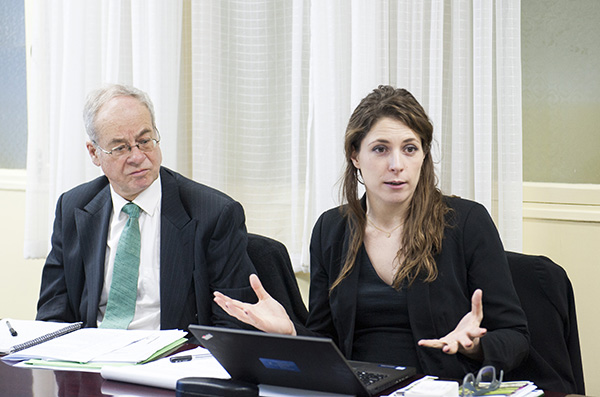
Dr. Jodie Keane
“The workshop is a form of South-South Cooperation, bringing together a diverse group of LDCs,” said Dr. Jodie Keane, Economic Adviser with the Commonwealth Secretariat. “It is extremely timely given the universal adoption of the Sustainable Development Goals (SDGs) last year, because the battle for the SDGs hinges onthe achievements of the LDCs.”
“Prof. Lin is definitely correct in his interpretation of development economics and uses rich empirical evidence to inform the theory based on the Chinese experience,” she added. “The GIFF is extremely detailed, not offered by any other development partner of the Commonwealth, filling an important gap in the international development architecture.”
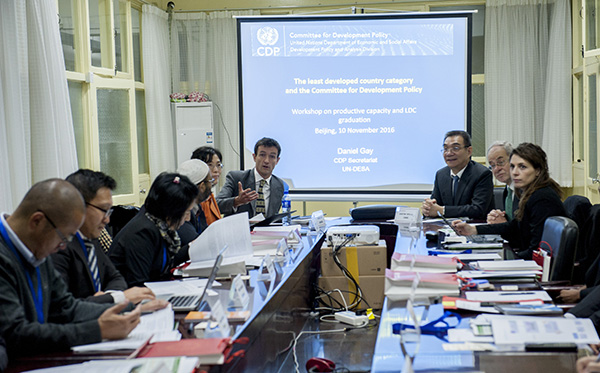
Dr. Daniel Gay addressing the meeting
“New Structural Economics and the GIFF are unique in a sense, providing LDCs with rigorous and practical tools for operationalization,” said , Inter-Regional Adviser with the CDP Secretariat. He added that he felt happy about the way the CNSE and the UN-DESA had collaborated in organizing the workshop, after the three fruitful pilot countries studies the CNSE and the UN-DESA jointly conducted in 2015.
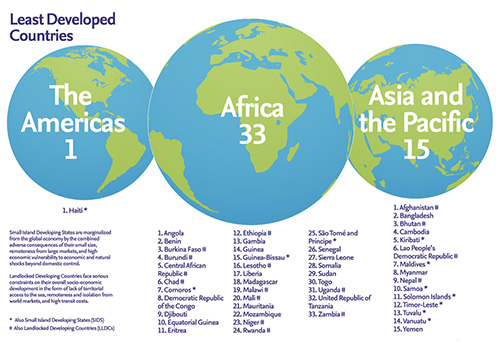
(Photo courtesy of makingitmagazine.net)
LDCs are low-income countries confronting severe structural impediments to sustainable development. The category of LDCs was introduced in 1971, to enable these countries to benefit from special international support measures in the areas of trade, development assistance, and general support. Several of the countries expecting to graduate from the LDC status by 2021 have expressed interest in better understanding the implications of the graduation.
(Photos by Cao Yi with NSD@PKU)
More information about LDCs can be found at the UN-DESA DPAD LDC Portal: http://www.un.org/ldcportal/